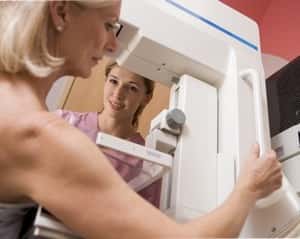
The link between breast cancer and hormone replacement therapy has been reinforced by a new study published in the Journal of the National Cancer Institute. It was part of the Women’s Health Initiative, a huge research project started in 1991.
One phase of the study involved roughly 70,000 postmenopausal women who were randomly assigned to receive either hormone replacement therapy or placebo. Researchers halted that part of the investigation prematurely in 2002 after they discovered an increased risk of breast cancer, heart attacks and strokes in women taking HRT.
Now a follow-up study that tracked over 40,000 other women for more than a decade also reveals an increased risk of breast cancer. Some experts believed that women who developed breast cancer after taking hormones might have less aggressive tumors and be less likely to die of their cancers. Sadly, that hope was dispelled by the new study, which found a significantly increased risk of breast cancer diagnoses in women who took estrogen plus progestin for approximately a decade. Breast cancer survival after diagnosis was similar whether women had used HRT or not.
Many women have opted out of HRT for menopausal symptoms as a result of the Women’s Health Initiative and concerns over an increased breast cancer risk. Others are so incapacitated by their symptoms that they choose hormones to improve the quality of their lives. Most doctors now recommend that those women use HRT for the shortest time possible to manage symptoms. Shortening the duration of use should reduce the risk of long-term complications.
[Journal of the National Cancer Institute, March 29, 2013]
We discuss HRT and non-hormonal approaches to easing hot flashes and vaginal dryness in our Guide to Menopause. We have also reported on the benefits of exercise in reducing a woman’s chance of developing breast cancer.

